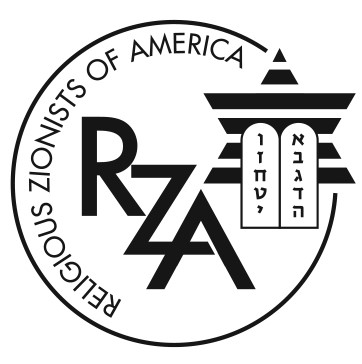One can see a similar phenomenon with regards to Adam HaRishon, when his Creator gave him Gan Eden and commanded him, He said eat from some things, and to not eat from the Tree of Knowledge “For on the day that you eat from it you will surely die” (Bereshit 2:17). When he violated the commandments of G-d, a sentence was passed, and upon the coming of the Sabbath it was nullified. He began to talk with him, as Adam may have repentented, as it says “And Hashem G-d called to Adam and said to him ‘Where are you?’”And the name Hashem shows the presence of the aspect of divine mercy, as it says “Hashem, Hashem, merciful and gracious” (Shemot 34: 6). The aspect of divine mercy was put ahead of the aspect of divine justice, so that Adam would repent. This is as it says ‘You are not a God who takes pleasure in wickedness,’ meaning that G-d does not want to incriminate a person.”
What is the relevance of this lesson in connection to the verse “When a man has on the skin of his flesh” (Vayikra 13:2)?
The picture is completed by another part of the Midrash (13:7): “Another interpretation: ‘When a man has on the skin of his flesh—’ why does the Torah not say ‘Speak to the Children of Israel,’ as it says in all other sections of the Torah, and rather says ‘When a man has on the skin of his flesh?’ This is as the verse says ‘You are not a God who takes pleasure in wickedness.’ But another verse says ‘My counsel will stand and all that I desire I will do.’ One who hears this second verse may say ‘Perhaps there will be a distortion of justice above.’ Rabbi Tanchuma says: ‘What does all that I desire I will do mean? That G-d does not want to incriminate any person. As it says I do not seek the death of the wicked (Yechezkel 33:11). This shows that You are not a God who takes pleasure in wickedness.’”
In other words, the Torah was not written in clear conditional language, saying “If a person has on the skin of his flesh,” rather it is written in a more firm manner, which presents skin lesions as things which will surely come. It is on this that the Midrash asks: why? And answers, that when G-d seeks to punish a person, He does not do this out of anger and vengeance, rather He does it out of the desire to correct his actions. G-d prefers to give a person skin lesions more rather than killing them. And since “there is no righteous person in the land who does good and has not sinned” (Kohelet 7: 20), we are forced to have lesions as part of our spiritual healing.
However, why were lesions specifically chosen as the most appropriate punishment that required atonement?
In the laws of blemishes which disqualify Kohanim from working in the Mishkan, the torah commanded: “Speak to Aaron and say: ‘One of your descendants throughout the generations that has a blemish, he should not approach to offer the bread of his G-d” (Vayikra 21: 16-17). Why does the Torah forbid a physically blemished Kohen from working in the Mishkan and the Beit Hamikdash? What did this poor man do that caused him to be removed from holy work?
Rabbi Moshe Cordovero explains, in accordance with the Zohar, that an exterior blemish is only an exterior manifestation of an inner, spiritual, blemish.
Nowadays, the concept of psychosomatic illnesses is clear and familiar. It has been shown that a person with high self confidence is more resistant to disease. It is also known that that nervousness can lead to diseases such as ulcers, and even cancer, chas v’shalom.
This is also true in our case: Lesions are essentially a “flooding” of the spiritual blemish, which is caused by sin, to the outer body. A person who has sinned clouds his soul and damages it. “It was taught in the house of Rabbi Yishmael: Sin confuses the heart of man.” And now, when G-d wants to cause a person to repent, he signals to him through skin lesions, the stains of the soul.
However, it seems that there is another level of understanding here: The sins of the nation of Israel are not essential to them, rather they are external and alien to their nature. “Israel, even though she sinned, is still Israel,” “Regardless, they are called sons.” Sin does not have the power to defile the deep innermost fundamental core of a Jewish person.
Lesions do not harm a person’s inner nature, but their outsides. “When a man has on the skin of his flesh,” on the outermost shell of his reality. Lesions signal that the outer layer of man— and not his soul, G-d forbid!— is contaminated, and that he must wake up and clean it, in order to prevent the same confusion of the heart, the same spiritual sealing and blockage in the future.
R. Ro’i Cohen is a teacher in Yeshivat Binot, a Hesder Yeshiva in Ra’anana. A graduate of Yeshivat Hesder Naharia (also known as yeshivat Nahar Deah), R. Hacohen teaches Gemara and other topics in Yeshivat Binot. In addition to this, he also runs a Torah learning group called Binot, which consists of young couples, many of whom are in the yeshiva already.

